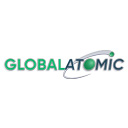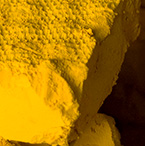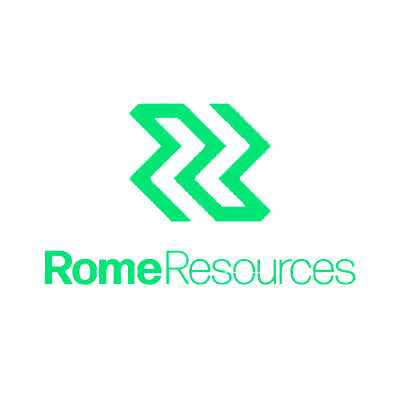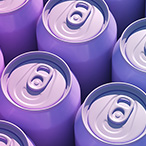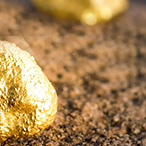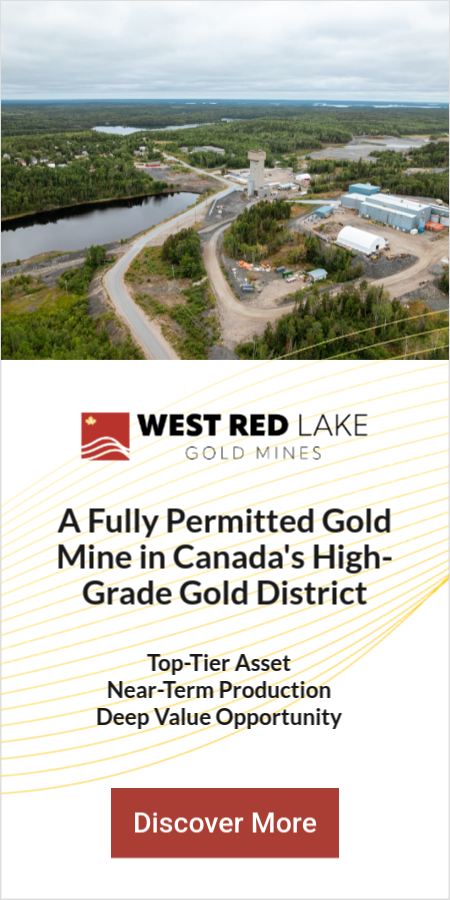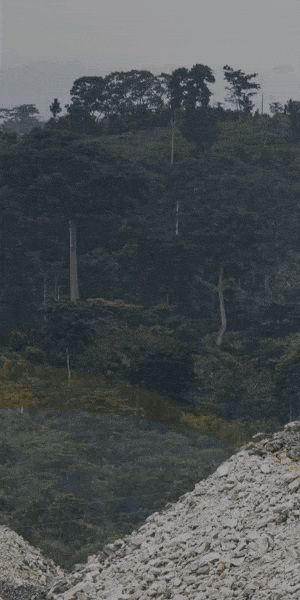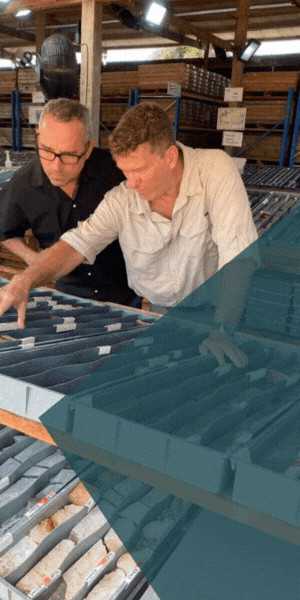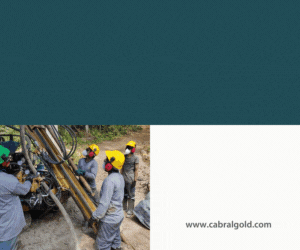Western Nations Boost Investment in African Mining Projects

Western nations boost investment in African mining projects for critical minerals, aiming to diversify supply chains and reduce dependence on China. Key companies driving this shift include Lifezone Metals, Global Atomic, Rome Resources, and Perseus Mining.
- Western nations are forming a coalition to invest in African mining projects, to reduce dependence on China for critical minerals.
- The Minerals Security Partnership (MSP), comprising 14 nations and the European Commission, has launched a financing network to support these projects.
- Key African mining companies, including Lifezone Metals, Global Atomic, Rome Resources, Sovereign Metals and Perseus Mining, are at the forefront of this initiative.
- This push for diversification offers significant economic opportunities for African countries while addressing the West's need for secure supply chains.
Western nations are significantly increasing their support for African mining projects in a strategic move to diversify global critical mineral supply chains. This initiative aims to reduce dependence on China's dominant position in the sector while fostering economic development in resource-rich African countries.
The Minerals Security Partnership (MSP), a coalition of 14 nations and the European Commission, has unveiled a new financing network to bolster critical minerals projects worldwide, focusing on Africa. This collaborative effort brings together government agencies, private industry, and financial institutions to support ventures crucial for the high-tech and green energy industries.
African Mining Companies in the Spotlight
Lifezone Metals
The Kabanga nickel project in Tanzania, developed by Lifezone Metals and partially owned by mining giant BHP, is set to receive debt financing from the US International Development Finance Corporation (DFC). This project is poised to challenge the Chinese-backed nickel monopoly in Indonesia.
Lifezone Metals is pioneering the development of the Kabanga Nickel Project, one of the world's largest and highest-grade undeveloped nickel sulfide deposits. The project is expected to produce Class 1 nickel, a critical component in electric vehicle batteries. Lifezone's innovative hydrometallurgical technology promises a more environmentally friendly extraction process than traditional smelting, potentially setting new standards for sustainable mining in Africa.
The company's partnership with BHP, which owns a 17% stake, brings world-class mining expertise to the project. This collaboration exemplifies the growing interest of major Western mining companies in African resources and their willingness to invest in cutting-edge, sustainable technologies.
Global Atomic
With uranium becoming increasingly important for nuclear energy, Global Atomic's projects in Niger are attracting attention from Western investors looking to secure supplies of this critical mineral.
Global Atomic is developing the Dasa Project, one of Africa's largest and highest-grade uranium deposits. Located in the Republic of Niger, the Dasa Project is positioned to become a significant supplier of uranium to the global nuclear energy industry. The company's focus on uranium aligns with the growing recognition of nuclear power as a key component in the transition to clean energy.
The strategic importance of the Dasa Project is amplified by its location in Niger, a country with a long history of uranium mining but historically dominated by French interests. Global Atomic's development represents an opportunity to diversify uranium supply chains, which is crucial for Western countries looking to secure resources for their nuclear energy programs.
Stephen Roman, President & CEO of Global Atomic, highlighted the growing importance of uranium in the global energy landscape:
"According to sources such as the WNA (World Nuclear Association), we are on the precipice of a growing supply gap for uranium to power the nuclear power plants that exist, are in construction or already planned. The COP28 goal of tripling capacity by 2050, which has now garnered funding support from some of the world's biggest financial institutions, will accelerate the demand for uranium and the need for new greenfield projects such as our advanced Dasa Project. This has significantly improved our options for the final funding of our project."
Roman's statement underscores the critical role that African uranium projects like Global Atomic's Dasa Project in Niger will play in meeting the growing global demand for clean energy. The company's progress also demonstrates the potential for Western investment to support the development of strategic resources in Africa, contributing to global energy security and local economic development.
Rome Resources
As the DRC holds significant reserves of various minerals, Rome Resources' tin projects are gaining traction among Western backers seeking to diversify their supply chains.
Rome Resources is focused on exploring and developing tin deposits in the North Kivu province of the Democratic Republic of Congo. The company's flagship project is the Bisie Tin Project, which includes the high-grade Mpama North mine. Tin is a critical mineral used in electronics, particularly in soldering for circuit boards, making it essential for various high-tech industries. The company's operations in the DRC highlight the potential for responsible mining in conflict-affected areas. Rome Resources has implemented strict due diligence processes to ensure ethical sourcing, aligning with international standards and Western expectations. This approach secures a vital supply of tin and contributes to economic development and stability in the region.
Sovereign Metals
Sovereign Metals is making significant strides in the exploration and development of critical minerals in Malawi, with a focus on rutile and graphite deposits.
The company's flagship project is the Kasiya Rutile Project, which is being developed as the world's largest natural rutile deposit. Rutile, a naturally occurring form of titanium dioxide, is a critical mineral used in the production of titanium metal, welding rods, and as a pigment in paints, plastics, and paper. The scale and high-grade nature of the Kasiya deposit position Sovereign Metals to become a major player in the global rutile market, offering an alternative to existing supplies dominated by a handful of producers.
In addition to rutile, Sovereign Metals is also developing graphite resources in Malawi. Graphite is a crucial component in lithium-ion batteries, making it essential for the electric vehicle industry and renewable energy storage systems. The company's graphite projects complement its rutile operations, showcasing the potential for diversified mineral production from a single region.
Sovereign Metals' projects in Malawi exemplify the untapped potential of many African nations in the critical minerals sector. The company's work aligns well with Western nations' efforts to secure diverse and reliable sources of these essential materials. By developing these resources in Malawi, Sovereign Metals is not only contributing to the global supply of critical minerals but also supporting economic development in one of Africa's least developed countries.
The growing interest in Sovereign Metals' projects from Western investors and potential off-take partners underscores the strategic importance of African mineral resources in reshaping global supply chains for critical minerals.
Perseus Mining
While gold isn't typically classified as a critical mineral, Perseus Mining's operations across multiple African countries demonstrate the continent's mineral wealth and the potential for expanded Western investment in the region.
Perseus Mining has established itself as a multi-jurisdictional, West African gold producer, developer, and explorer. The company operates three gold mines: Edikan in Ghana, and Sissingué and Yaouré in Côte d'Ivoire. These operations collectively produce over 500,000 ounces of gold annually. Although gold is not considered a critical mineral in the same sense as nickel or tin, Perseus Mining's success story is significant for several reasons:
- It demonstrates the potential for Western companies to operate successfully across multiple African countries, navigating different regulatory environments and building positive relationships with local communities.
- The company's growth from a single-mine operator to a multi-mine, multi-country producer showcases the scalability of mining operations in Africa when backed by proper investment and management.
- Perseus's operations contribute significantly to the economies of Ghana and Côte d'Ivoire, providing employment, skills development, and tax revenues. This model of economic contribution is what Western nations hope to replicate with investments in critical minerals.
- The company's exploration and development activities in Tanzania and Sudan indicate ongoing opportunities for discovering and developing new mineral resources across the continent, which could also be applied to critical mineral.
While Perseus Mining focuses on gold, its operational model and success in managing complex African projects provide valuable lessons and confidence for Western investors looking to support critical mineral projects on the continent.
Western Support & Financing
Jose Fernandez, US under-secretary of state for economic growth, emphasized the importance of this initiative: "We realize we can't solve this problem with any one single country; we are stronger together."
The MSP is evaluating over 30 critical minerals mining projects, many of which are located in Africa.
Western nations are directing their development finance and export credit agencies to work alongside private industry in supporting these projects. This approach aims to offer lower-income countries alternatives to Chinese financing and investment.
Scott Nathan, DFC chief executive, stated, "What we're focused on is making sure that the private sector has a fair shake and has the tools necessary to provide the financing and investment to spur the growth of this industry."
Challenges & Opportunities
While China has maintained a strong lead in critical mineral projects due to various factors, including subsidies, more accessible financing, and lower costs, Western nations are now stepping up their game. The surge in demand for raw materials needed for the energy transition, including uranium for nuclear power, creates a potentially profitable and more stable market for investors.
Dominic Raab, former UK deputy prime minister and current head of global affairs at Appian Capital Advisory, a major investor in critical minerals, commented on the challenges and potential: "Investors wouldn't be looking at these things if there weren't potential returns, but it is difficult. And the question is whether we can thread the needle."
Conclusion
As Western nations join forces to break China's grip on critical minerals, African countries and mining companies stand to benefit significantly. This renewed focus on African mineral resources promises to diversify global supply chains and offers substantial economic opportunities for the continent. With continued collaboration between governments, private investors, and mining companies, Africa could be pivotal in reshaping the global critical minerals landscape, particularly in sectors like uranium production for clean energy initiatives.
Analyst's Notes




Subscribe to Our Channel
Stay Informed












